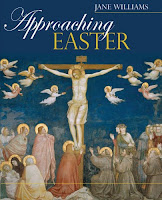During Liz Truss’s ill-fated premiership, anxious to build on Boris Johnson’s Ukraine-bolstered popularity, Ben Wallace, the UK Defence Secretary, was sent to the United States to discuss with his American counterpart. We were told this was because of the villainous Vladimir Putin and the "very real" threat of his launching a dirty bomb attack on Ukraine. Of course Mr Putin denied this - but then, as we have been discovering here, politicians have a habit of lying in order to save their skins. Well, no doubt, our intelligence services know what they’re talking about - inasmuch as we’re allowed to hear.
Of course, we won’t learn the truth for many years. However there is an irony here. And that is that these foul weapons, which combine conventional and atomic elements, had their origins in our own country. I’m listening to the BBC Radio 4 series “Fallout: Living in the Shadow of the Bomb” at the moment. What a disastrous story! It’s an account of the British nuclear bomb testing after 1952, in Australia and the Pacific Ocean. I learned what I didn’t know before: that it was two scientists in Birmingham University (which even has a blue plaque to commemorate the event) who first wrote about the possibility of airborne nuclear fission and it was Winston Churchill and the UK wartime government who started an atomic weapons project, codenamed Tube Alloys, before the Manhattan Project in the USA. In fact it was we who shared the technology with them, and German and Soviet spies who disseminated it to their respective powers. Talk about reaping the whirlwind!
But then it has always been thus. We discover a new super-weapon, such as the rifle, and we destroy indigenous nations and take their ancestral lands; or chemical and biological weapons and are appalled when they’re employed by dictators. We develop sophisticated landmines and then weep crocodile tears when thousands of children have limbs blown off. Drones were developed in the UK and the USA and used by Germany in the war, and now they are devastating our ally, Ukraine.
As we approach Remembrance Day, in my view it’s vital that we recognise our complicity in this horrific trade and how central the military-industrial complex is in our economy. In his two-part essay, Re-remembering War Alan Storkey writes: “The Military-Industrial Complexes of the World need wars and generate wars. Accumulating arms causes wars and did in 1914. Most modern wars do not have a big disputed reason, but start because the military and the arms sellers need wars for their business. The military-industrial complex, allied to its politicians, cause wars and rumours of wars.” And he quotes Lord Grey: “The person who knew the build up to World War One most thoroughly was Lord Grey, British Foreign Secretary for the preceding decade. He said: ‘The moral is obvious; it is that great armaments lead inevitably to war. If there are armaments on one side, there must be armaments on other sides.. The increase in armaments that in each nation is intended to produce consciousness of strength and a sense of security, do not produce these effects. On the contrary, it produces a consciousness of the strength of other nations and a sense of fear. Fear begets suspicion and distrust and evil imaginings of all sorts…The enormous growth of armaments in Europe, the sense of insecurity and fear caused by them – it was these that made war inevitable. This, it seems to me, is the truest reading of history, and the lesson that the present should be learning from the past in the interests of future peace, the warning to be handed on to those who come after us.’"
As Storkey comments, "There were many other witnesses to the same truth, as we shall see. ARMS CAUSE WARS.” Both developing weaponry and deploying it are pernicious human activities, and we should be more than sad as this weekend we contemplate their effects. Surely we should pressure our politicians actively to resist the siren calls of the arms industry with their well-paid lobbyists and a light grasp of morality? And pledge ourselves actively to seek peace? Or as the Peace Pledge Union has it, "Remember and disarm".
There's a prayer for Remembrance Sunday which goes: "God, our refuge and strength, bring near the day when wars shall cease and poverty and pain shall end, that the earth may know the peace of heaven, through Jesus Christ our Lord. Amen." With due respect to the writer of the prayer, I reckon it isn't just the Almighty's job to work for peace.








